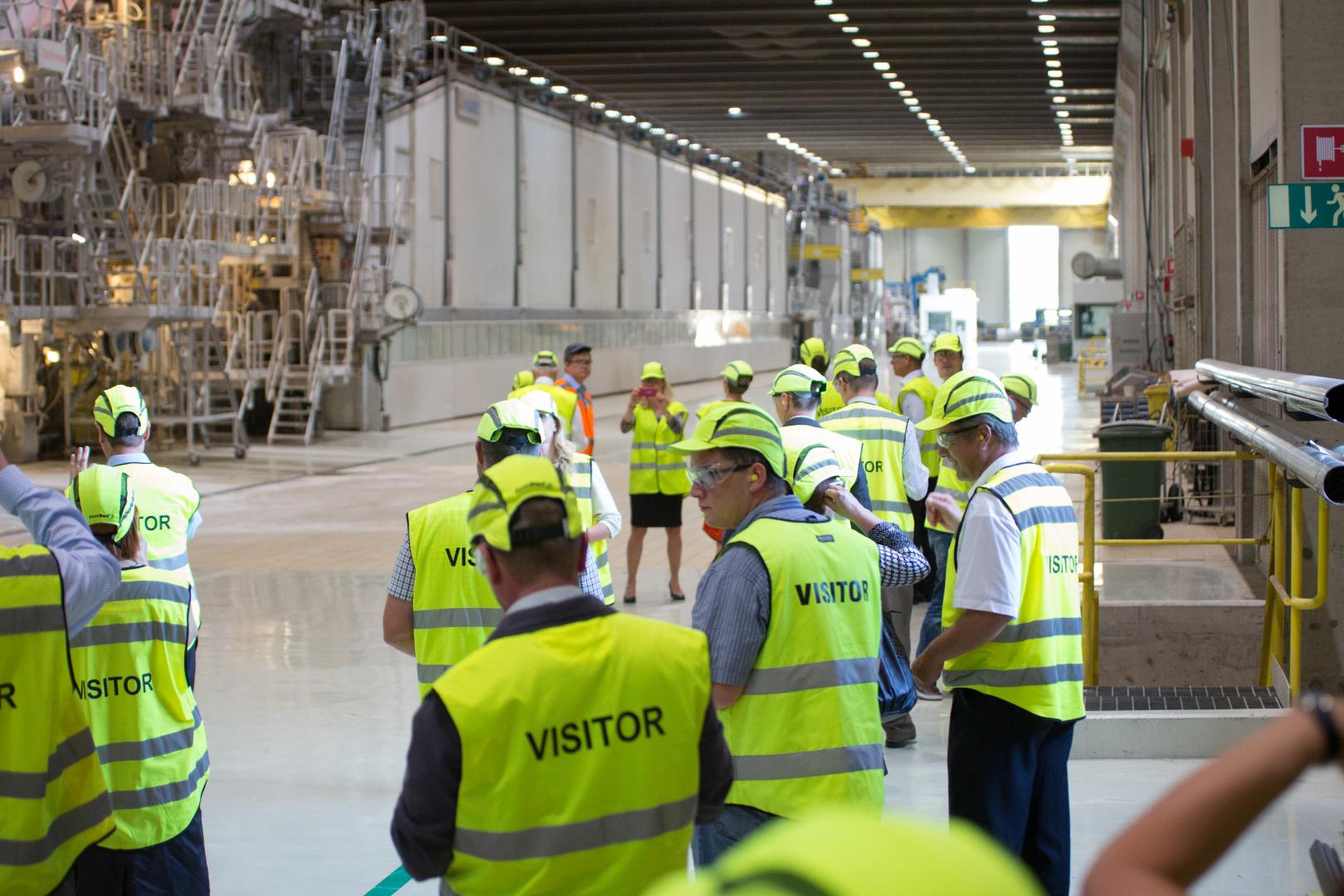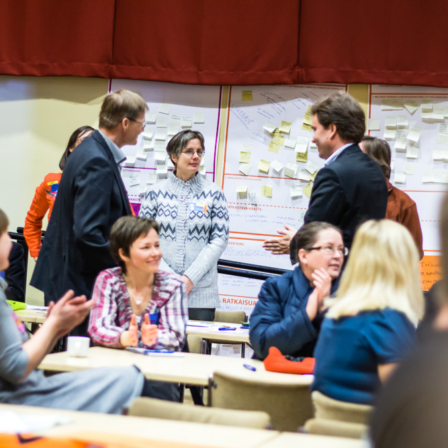Companies in Rauma discovered 360 new cooperation opportunities for benefiting from waste, waste energy, by-product streams and underused premises.
“We have been living in a world of plenty, which is now over. The world is no longer limitless; our world is one of scarcity. Finland is in need of industrial change. This is not a threat, but an opportunity: an industrial symbiosis will open up new markets and business opportunities.” These are the words of Leading Specialist Sitra’s Jyri Arponen, who opened the What we had we can no longer afford event held in Rauma last Tuesday.
The event attracted over a hundred participants, most of whom represented companies based in south-west Finland. Information about industrial symbioses, cooperation between companies and the wise use of resources fell on good soil. During the event workshop, the companies were able to identify more than 200 previously unused resources – leftover materials, waste, space, services, expertise or logistics – which could benefit other companies. The workshop yielded 360 new cooperation opportunities, or potential industrial symbioses between companies in the region.
“I have been asked if this is like a dating service for companies. My answer is yes. But it will require tremendous effort to make the relationship last,” said Arponen.
Companies investigated their cooperation opportunities using the NISP model (National Industrial Symbiosis Programme) developed in the UK. The British NISP Network was launched in 2003. Today it has some 15,000 member organisations in that country alone, and the model has also spread abroad. In Finland, Sitra has tried the model over the past few months in Helsinki and Jyväskylä – and now in Rauma.
The US Ambassador to Finland, Bruce Oreck, also encouraged entrepreneurs to discover new, environmentally friendly business opportunities.
“Mother Nature would never have planned a system which wastes so much material. You should do what Finnish people are so good at doing: renew your connection with nature – also within the industry. When business operations use as few resources and little energy as possible, the environment is preserved and business blooms,” Oreck said in his video greeting to the event.
The Federation of Finnish Technology Industries repeated the message from a practical viewpoint, reminding the event participants that waste-related EU directives, for example, make waste recovery more difficult.
“We are planning to send a survey to companies, charting the practical obstacles of waste recovery,” says Jouni Lind, sustainable development specialist at the Federation of Finnish Technology Industries. “Our aim is to build a clear, predictable field of operations where companies have no unnecessary burdens or obligations.”
The business perspective was introduced at the event by Kari Pasanen and Marko Janhonen, representing the forestery and timber firm UPM, and Rami Aarikka of soft-drink factory Laitilan Wirvoitusjuomatehtaan. The City of Rauma was represented by Mayor Kari Koski.
See the press release about the event (in Finnish only): Jätteestäkö uutta bisnestä? and Susanna Perko’s blog post on the event (also only in Finnish): Parhaan näkeminen.





Recommended